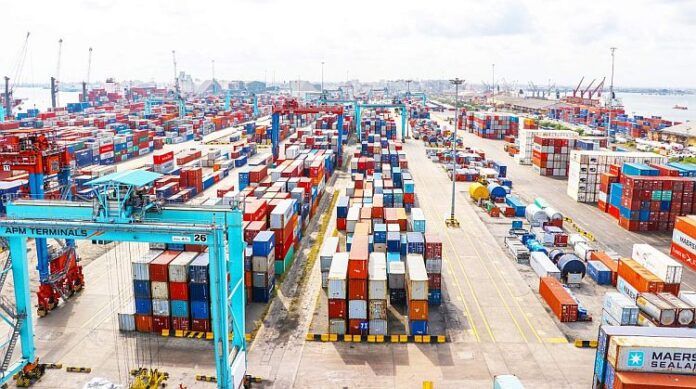The Federal Government, through the Nigerian Ports Authority (NPA), has effected an upward review in its tariffs, which were last reviewed in the year 1993.
The 15 per cent increase, which is to cut across all NPA rates and dues, was premised on the urgent need to address the undesirable reality of aged and weak infrastructure, obsolete equipment and slow port capacity expansion that has continued to diminish the performance and indeed competitiveness of Nigerian ports.
At a stakeholders meeting in Lagos yesterday, the Managing Director of NPA, Abubakar Dantsoho, represented by Executive Director, Marine and Operation, Olalekan Badmus, said the decision to meet stakeholders was borne out of the desire to carry everyone along.
Also, Dantsoho noted that the upward review was compelled by the exigency of bringing Nigerian ports up to speed with those of its peers in terms of infrastructure and equipment, Globally, he said port authorities depended on revenue from operations to stay alive to their responsibilities which include construction and maintenance of port infrastructure, dredging of channels, provision of aids for safe navigation, provision of modern marine crafts for efficient harbour services, automation and digitisation of port transactions, port security, energy efficiency and training and retraining of its employees.
According to him, the global index of port rating and competitiveness, which the international trade community relies on for its choice of countries to do business with, derives its data from how well the aforementioned responsibilities are addressed.
Coming at this period of global economic upheaval and scramble for markets, it said that the belated tariff review borne out of necessity constituted a critical success factor in Nigeria’s quest to win back cargo handling business and it’s accompanying benefits including job opportunities it had lost to it’s maritime neighbors.
Contrary to the popular but erroneous notion that attributes high port costs to NPA relative to its peers, it added that verifiable data had showed that NPA tariffs were among the lowest in the region.
He added: “The high incidence of unreceipted costs due to unduly high human interface, bureaucratic bottlenecks, functional overlaps resulting from absence of a Port Community System (PCS) and its corollary the National Single Window (NSW) are responsible for this contrived falsehood.
“Although, long overdue, a quick win benefits of the NPA tariff review for stakeholders, is the immediate boost it gives to the Authority to fast track the commencement of actual works on its concluded Port reconstruction and modernisation plans.















